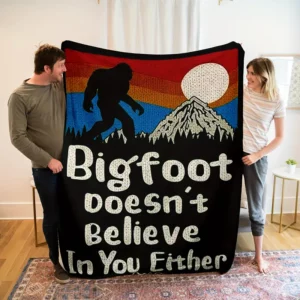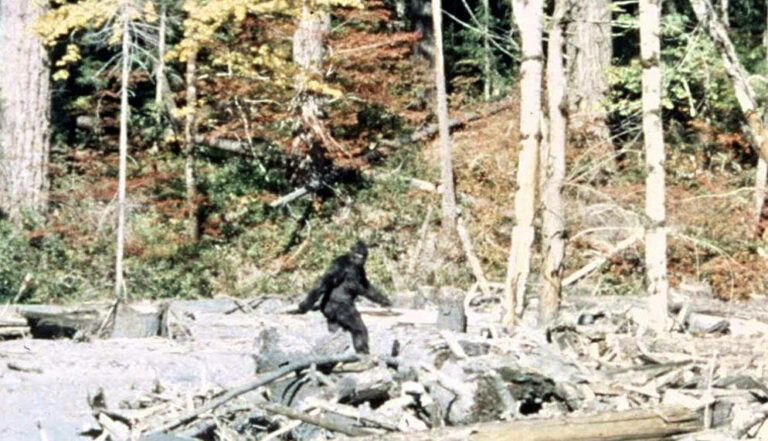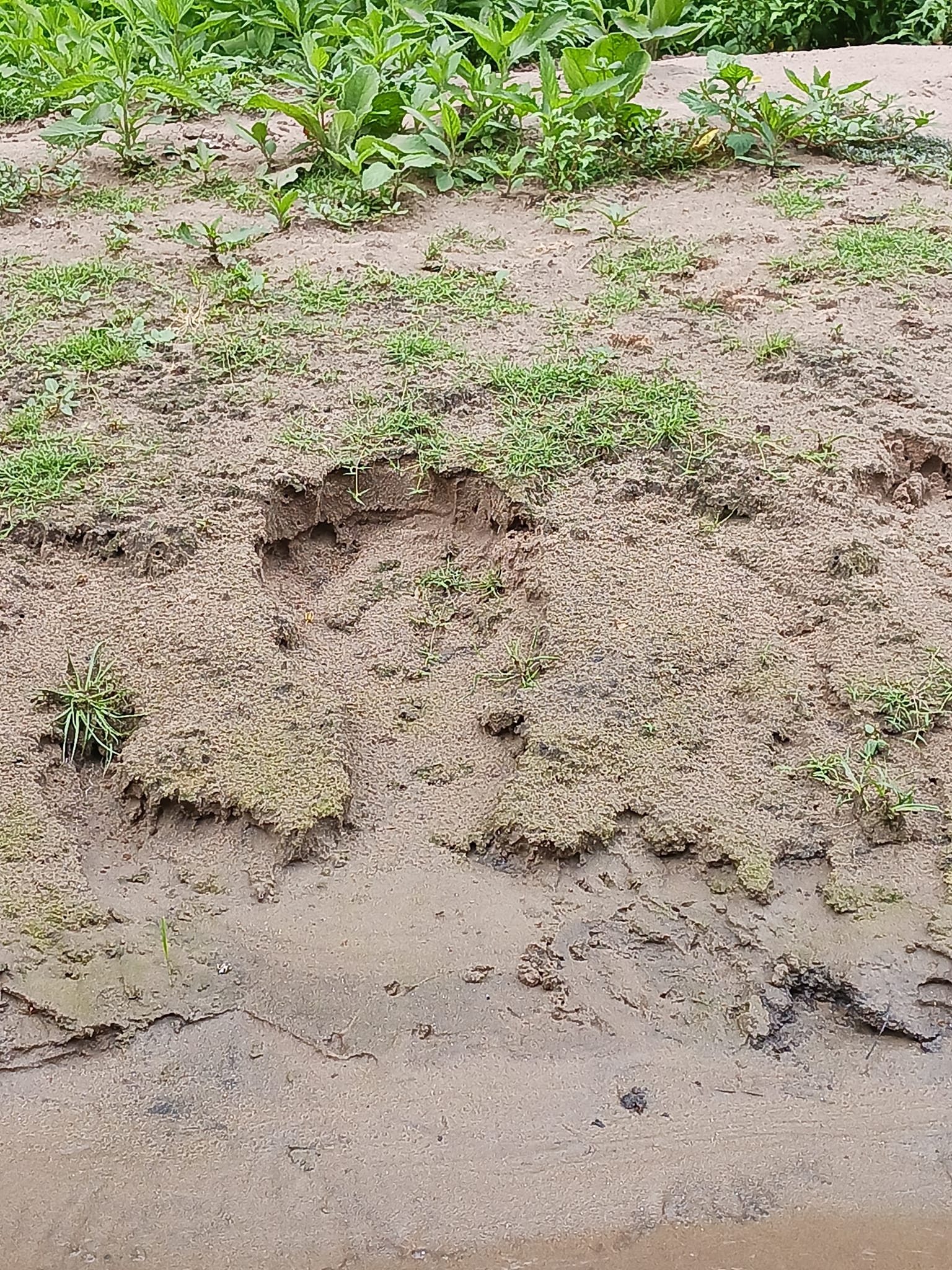These pictures taken by a Trail Camera was distributed in a Facebook Bigfoot group asking for clarification as to what it could be. Some thought it was definitely a bigfoot, while others thought it was a Black Bear with mange. Look at the pictures taken by the Jacob brothers, hunters in Pennsylvania, game trail camera in 2007 in Pennsylvania. Then take a look at some sample pictures of bears with mange, then tell us your thoughts. The Pennsylvania Game Commission has written it off as a bear with mange, do you agree? Take a close look at posture of the animal, the way it bends and the length of the legs and or arms.
According to Wikipedia, “Mange is a type of skin disease caused by parasitic mites. Because various species of mites also infect plants, birds and reptiles, the term “mange”, or colloquially “the mange”, suggesting poor condition of the skin and fur due to the infection, is sometimes reserved for pathological mite-infestation of nonhuman mammals. Thus, mange includes mite-associated skin disease in domestic mammals, in livestock, and in wild mammals. Severe mange caused by mites has been observed in wild bears. Since mites belong to the arachnid subclass Acari, another term for mite infestation is acariasis.”
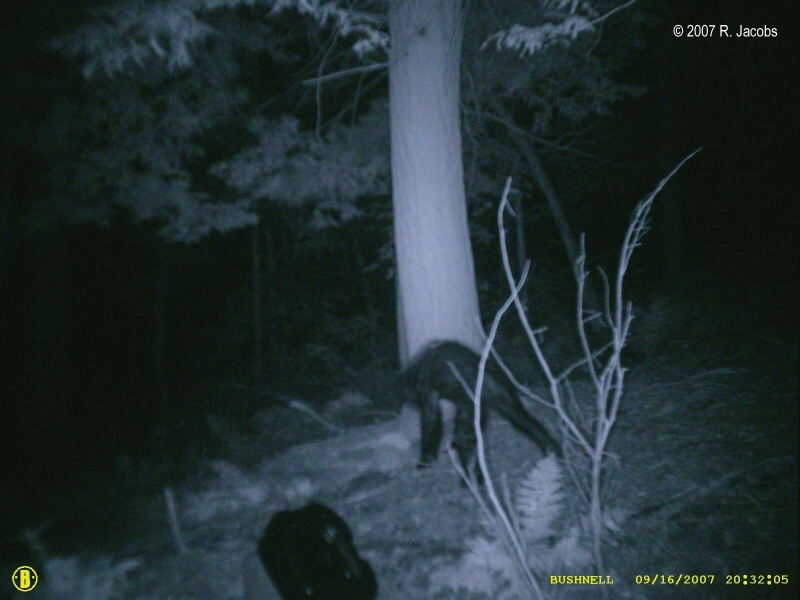
Here are some closer looks at this image, notice the angle of the head, it is facing down some, but not completely down as some people have thought. When looking at this picture alone you will think one thing. Keep looking at the other pictures.
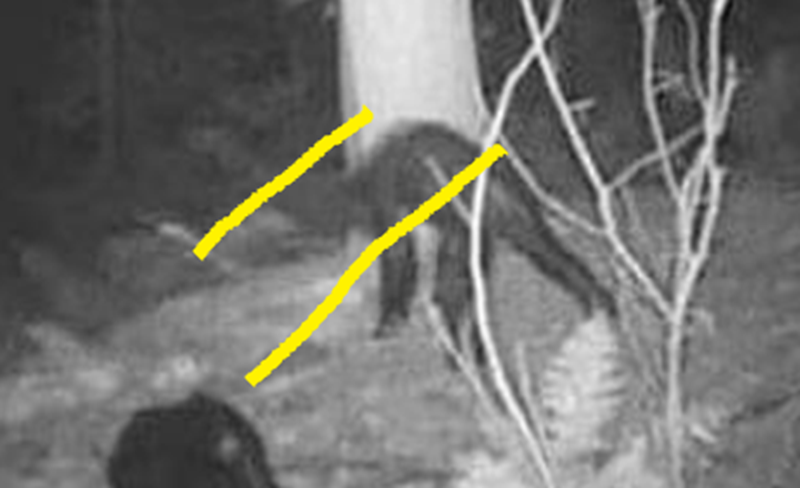
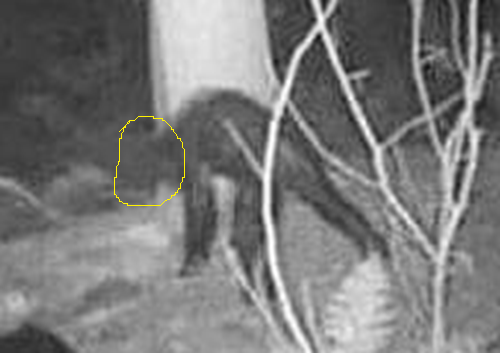
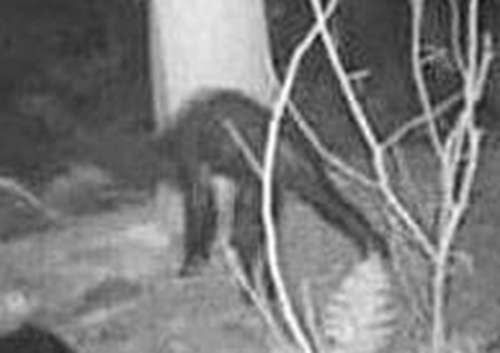
Now take a look at the 2nd photo in the same place approximately 36-seconds apart. Notice the bending at what would appear to be a waste, or mid-section. Bears skeletal structure doesn’t allow this movement, this is mor primate in nature.
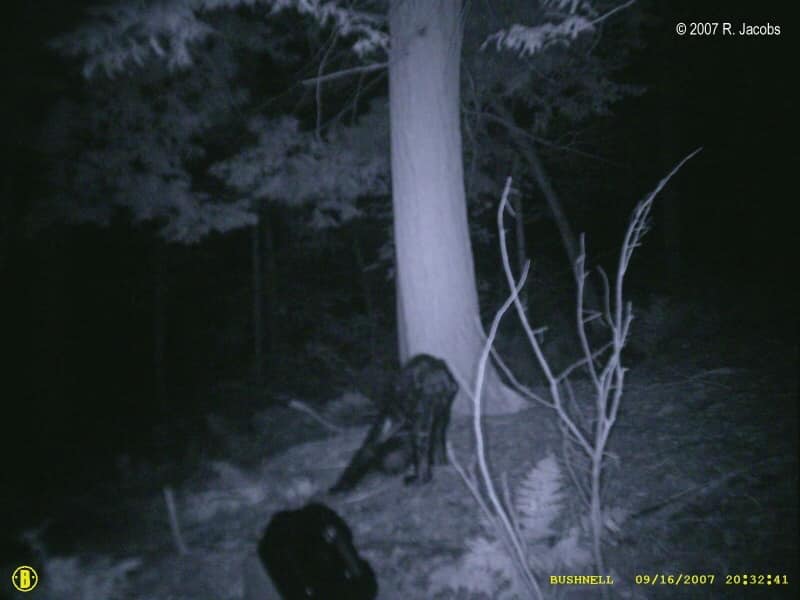
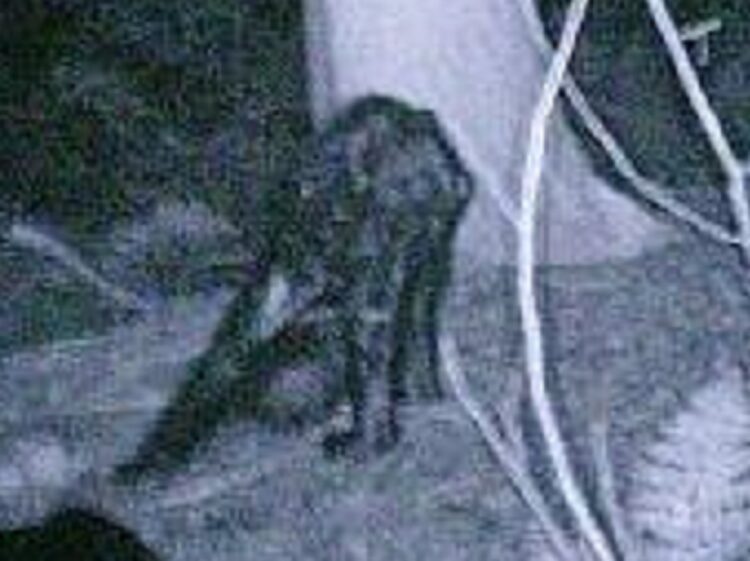
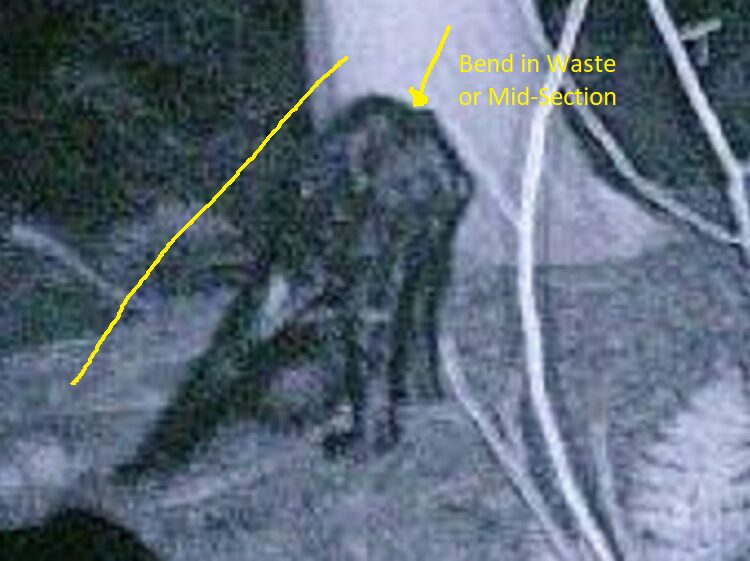
When you are able to look at both pictures it gives you a different take on it. It makes you wonder what could bend over with a posture of this nature. Could a bear do this? Perhaps some form of primate?
There have been instances where black bears with mange are mistaken for Bigfoot. Mange can cause bears to lose their fur, making their appearance more unusual and sometimes more human-like, especially when they stand on their hind legs. This can lead to misidentification, contributing to some of the reported Bigfoot sightings.
Recent studies have found a strong correlation between Bigfoot sightings and black bear populations. For example, one study noted that for every 1,000 black bears, the frequency of Bigfoot sightings increases by about 4%. Another analysis suggested that in areas with at least 900 black bears, a Bigfoot sighting is likely to follow. This correlation suggests that mistaken identity is a significant factor in Bigfoot sightings, with people potentially misidentifying American black bears as the mythical creature. Keep in mind that not all sightings are explained this way, this is but one option when the encounter is limited and perhaps the person’s experience is as well.
It’s a fascinating intersection of wildlife biology and folklore, showing how animal behavior and physical characteristics can influence local legends and myths.
Here are a few examples of images of bears with mange and how they can even look different from each other.
As you can see, they have lost most if not all resemblance of a being a bear, imagine seeing one of these in the woods standing on it’s hind legs, definitely would be a sight. But keep in mind this does not explain away other sightings at all, especially the ones where the encounter has an animal that is over 10 feet tall and massive. This just explains a few.
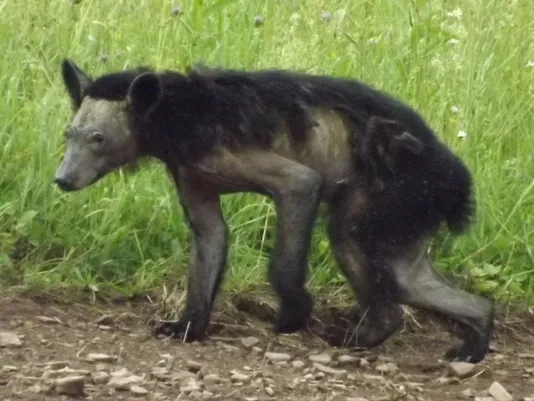
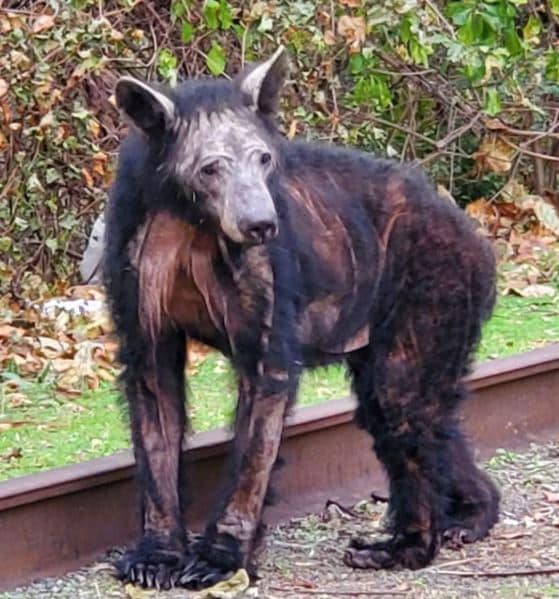
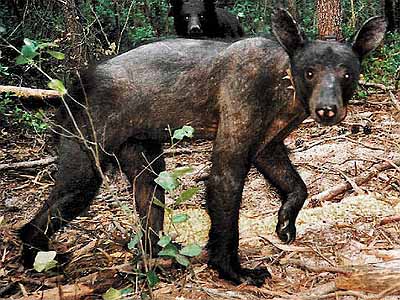
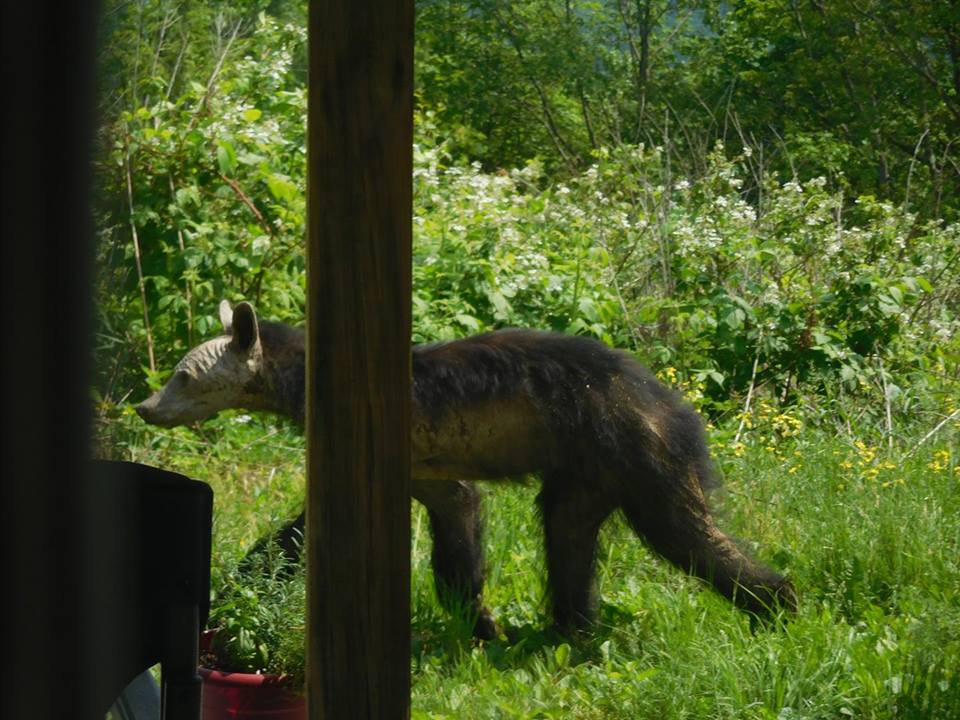
What do you Think?
Bear with mange? A monkey on the loose? Or could it be a Bigfoot/Sasquatch juvenile? Use the comment section below and chime in with your observations and thoughts.
Sponsored Products
Your support Helps us pay for this site and conduct Analysis Research, everything helps… besides, you get Cool Bigfoot STUFF…
- Quick View
- Quick View
-
Quick View
Challenge Coin US Armed Forces – Commemorative Coin
Original price was: $9.00.$6.97Current price is: $6.97. Add to cart


